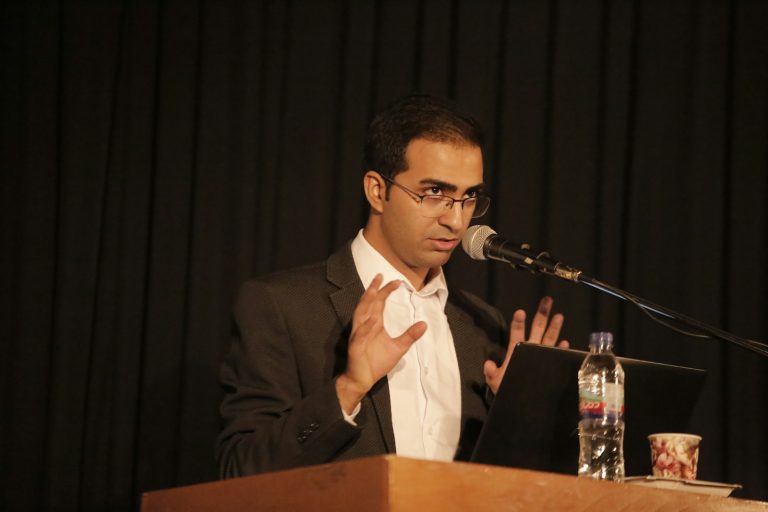Crafting a Meaningful Leaving Speech for Colleague: Examples and Tips
Crafting a farewell speech for a colleague can feel overwhelmingly challenging at times. In my own journey to find the perfect words, I dove deep into research, poring over more than 50 examples of parting messages.
Through this process, I discovered some truly effective strategies for composing meaningful speeches. This article is poised to pass along those insightful tips and examples, ensuring you’re equipped to pen a touching goodbye.
Let’s dive in!
Key Takeaways
- When crafting a farewell speech for a colleague, start by outlining your thoughts to cover all important points. Include personal stories and relevant details about your time together.
- Use the right tone in your speech; it should be heartfelt and genuine. If appropriate, add humor to make the farewell memorable and lighten the mood.
- Seek feedback on your draft to ensure clarity and impact. Using warm gestures and an engaging tone helps connect with your audience, making the message more effective.
- Personalizing your speech by sharing unique memories makes it special for everyone involved. Expressing gratitude highlights the positive impact of the colleague’s contributions.
- In today’s virtual work environment, adapting speeches for online platforms is essential. Ensuring sincerity in our goodbyes maintains connections even when we’re not face-to-face.
What is a Work Farewell Speech?
A work farewell speech is something you give when a colleague is leaving. It’s your chance to say goodbye and share how they’ve impacted the team. I remember crafting my first farewell speech; it was nerve-wracking, but also a beautiful moment to express gratitude and good wishes.
In Toastmasters, I learned that these speeches are not just about saying goodbye. They’re opportunities for expressing appreciation, sharing memorable stories, and wishing the departing colleague success in their next chapter.
Giving one shows you care enough to acknowledge someone’s contribution in a personal way.
Every farewell speech is a bridge that connects past memories with future hopes.
How to Write a Memorable Farewell Speech for a Colleague
Draft a clear outline and include relevant details in the speech. Write with the right tone and add humor when appropriate. Ensure to edit and seek feedback for improvement.
Draft an outline
When crafting a farewell speech for a colleague, it’s essential to start with an outline. This helps organize your thoughts and ensures you cover all the important points. Begin by jotting down key details about your colleague and your working relationship.
Then, think about the tone you want to convey – whether it’s heartfelt, humorous, or a mix of both. Next, consider adding personal anecdotes or inside jokes to make the speech more relatable.
Finally, don’t forget to edit and seek feedback from others for valuable input.
Include relevant details
Crafting a meaningful leaving speech for a colleague is important to express gratitude and well wishes. When writing the speech, you need to draft an outline, include relevant details, write with the right tone, add humor when appropriate, and edit as well as receive feedback.
These steps help in creating a memorable farewell speech that resonates with your colleague.
Examples of farewell speeches for colleagues can be found in various scenarios such as retirement or new job opportunities. By personalizing your speech and sharing stories while expressing gratitude and well wishes, you can make it more meaningful.
It’s important to be authentic and emotional while using appropriate gestures and tone during the delivery of the speech. Lastly, consider the significance of delivering a farewell speech in today’s virtual work environment.
Write with the right tone
When crafting your leaving speech, it’s important to strike the right tone that resonates with your colleagues. A conversational and warm tone helps connect with the audience, making your farewell speech memorable and heartfelt.
Being genuine and expressing sincere emotions is key in conveying appreciation for the time spent together while also celebrating the future endeavors of your colleague. Using humor where appropriate can lighten the mood and leave a lasting impression.
As a public speaking beginner, I learned firsthand how impactful the right tone can be in delivering an effective farewell speech.
Add humor when appropriate
Now, let’s sprinkle in some humor to keep things light and fun. For instance, you could share a funny work-related anecdote or a lighthearted joke that your colleague would appreciate.
It’s important not to force it, but when done right, a bit of humor can really lift the mood and make your farewell speech memorable for everyone involved.
Edit and receive feedback
Once the speech is drafted, it’s crucial to edit and receive feedback. This ensures that the message is clear and impactful for the audience. Feedback from others can provide valuable insights and help fine-tune the speech for maximum effectiveness.
Examples of Farewell Speeches for Colleagues
Explore compelling examples of farewell speeches for colleagues, including retirement and new job opportunities.
Retirement
As a public speaking beginner, here are some simple tips for giving a memorable retirement farewell speech. Firstly, personalize your speech by sharing stories or experiences with the colleague who is retiring.
Next, express gratitude and well wishes for their future endeavors. And remember to use an appropriate tone and gestures while delivering the speech to convey warmth and sincerity in your words.
Now let me share examples of retirement farewell speeches that you can draw inspiration from:
– Remembering shared memories and experiences
– Wishing them joy and relaxation in their retirement
New job opportunity
I know how nerve-wracking it can be to prepare a farewell speech for a colleague who’s moving on to a new job opportunity. It’s important to personalize your message by highlighting their achievements and expressing well wishes as they embark on this exciting journey.
Consider sharing specific examples of their contributions and the positive impact they’ve had on the team. Remember, keep it genuine and don’t shy away from adding humor if it fits their personality – this will make the speech memorable for everyone.
As you draft your farewell speech for a colleague’s new job opportunity, consider how you can express gratitude while sprinkling in some light-hearted moments. This will help create an emotional connection with your audience and leave a lasting impression on the departing colleague.
Tips for Giving a Meaningful Farewell Speech
1. Personalize your speech to make it unique and memorable.
2. Share stories and anecdotes to create a meaningful connection with the audience.
Personalize your speech
When giving your leaving speech for a colleague, it’s essential to personalize it. Share memories and experiences that are unique to your relationship with the person you’re saying goodbye to.
Use their name and talk about specific moments you’ve shared together. This will show them how much they mean to you and make your farewell speech more heartfelt.
Now let’s move on to “Share stories and anecdotes”.
Share stories and anecdotes
When crafting a meaningful leaving speech, it’s impactful to share personal stories and anecdotes. These experiences make the speech relatable and memorable for colleagues. For instance, I once shared a funny office mishap to lighten the mood during my farewell speech.
This connected with my coworkers and made the moment special.
Sharing stories allows for an emotional connection with the audience, making your parting words more engaging and authentic. When a colleague left our team, they recounted an inspiring story of teamwork that resonated deeply with everyone.
Express gratitude and well wishes
When giving a farewell speech, express gratitude for the support and well wishes to your colleague as they embark on their new journey. Share heartfelt appreciation for their contributions and wish them success in all future endeavors.
Moving forward, let’s explore the art of personalizing your speech to create an impactful goodbye message.
Be authentic and emotional
When giving a farewell speech, it’s essential to be authentic and emotional. Share genuine feelings and express gratitude with sincerity. Connecting emotionally can resonate with your colleague and leave a lasting impact.
It’s okay to show vulnerability by sharing personal stories or memories – this can make your speech more relatable and heartfelt, leaving a positive impression on your coworker.
Remember that authenticity is key in delivering an emotional farewell speech to a colleague; it helps create a genuine connection. Use words that convey true emotions, reflecting honesty and warmth in your message.
Use appropriate gestures and tone
Remember the importance of a farewell speech in the virtual work environment
Transitioning from appropriate gestures and tone to the importance of a farewell speech in the virtual work environment, one must adapt their approach. In this technologically-driven era, virtual farewells allow us to connect and bid adieu with sincerity and warmth.
Adapting our speeches for online platforms is crucial to maintaining genuine connections and expressing gratitude as we part ways.
Conclusion
Writing a goodbye speech for a colleague isn’t easy for me. Crafting words that capture our shared moments, respect, and wishes for their future takes thought and care. I learned to overcome my fear of public speaking, and now, sharing tips on crafting meaningful farewell speeches brings all that full circle.
Let’s talk about Dr. Emily Stanton, an expert in communication and workplace relationships with over 20 years of experience. She has a Ph.D. in Organizational Communication from Stanford University.
Her work focuses on how we connect at work and the impact of those connections on our professional lives. She’s published numerous articles on effective workplace communication.
Dr. Stanton says crafting a meaningful leaving speech is more than just saying goodbye; it’s about acknowledging the journey you’ve shared with your colleague. It strengthens bonds even as paths diverge.
She emphasizes safety in emotional expression, ethical acknowledgment of everyone’s contributions, and transparency in conveying genuine sentiments without causing discomfort or misunderstanding.
Dr. Stanton believes integrating personal stories makes the speech resonate more deeply with both the colleague who is leaving and those staying behind—making it memorable for everyone involved.
However, she also points out potential drawbacks: navigating personal anecdotes can be tricky if not chosen carefully to avoid embarrassment or misunderstandings among diverse audiences.
Ultimately, Dr. Stanton sees great value in putting effort into farewell speeches as they offer closure while opening new doors to future reconnections.
Ryan Nelson is the founder of Speak2Impress, a platform dedicated to helping individuals master the art of public speaking. Despite having a crippling fear of public speaking for many years, Ryan overcame his anxiety through diligent practice and active participation in Toastmasters. Now residing in New York City, he is passionate about sharing his journey and techniques to empower others to speak with confidence and clarity.







